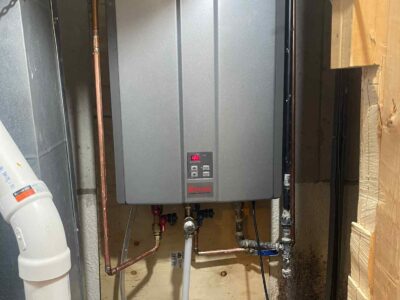
In the realm of modern interior design and durable flooring solutions, epoxy floors have emerged as a popular choice for both residential and commercial spaces. Epoxy flooring offers a blend of aesthetic appeal, durability, and easy maintenance, making it a preferred option for various environments ranging from homes to industrial facilities. This article delves into the details of epoxy floor services, exploring what they entail, their benefits, installation process, maintenance tips, and more.
Understanding Epoxy Flooring
Epoxy flooring is a type of resinous flooring system that consists of multiple layers of epoxy applied to a concrete substrate. It is known for its seamless finish, high gloss appearance, and robust performance characteristics. Epoxy floors are highly customizable in terms of color, patterns, and finishes, allowing for creative expression while meeting functional requirements.
Benefits of Epoxy Floors
- Durability: Epoxy floors are exceptionally durable and resistant to stains, impacts, chemicals, and abrasions, making them ideal for high-traffic areas.
- Aesthetic Appeal: They offer a smooth, glossy surface that enhances the visual appeal of any space. Various colors and decorative flakes can be added to achieve desired aesthetics.
- Easy Maintenance: Epoxy floors are easy to clean and maintain. Regular sweeping and occasional mopping are usually sufficient to keep them looking pristine.
- Safety: Some epoxy formulations include anti–slip additives, improving traction and safety in wet or oily environments.
- Cost-Effectiveness: Over the long term, epoxy flooring is cost-effective due to its durability and low maintenance requirements compared to other flooring options.
Types of Epoxy Flooring
- Self-Leveling Epoxy Floors: Ideal for areas requiring a smooth, seamless finish, such as garage floors and commercial spaces.
- Epoxy Mortar Floors: Composed of epoxy resins and graded aggregates, these floors are extremely durable and can withstand heavy loads and impacts. Commonly used in industrial settings.
- Decorative Epoxy Floors: These include metallic epoxy floors and terrazzo-like epoxy finishes, offering a high-end look suitable for retail spaces and upscale residential interiors.
Epoxy Floor Services: What’s Included?
Epoxy floor services encompass a range of activities aimed at delivering a high-quality, long-lasting flooring solution. Here are the key components typically involved:
- Surface Preparation: Proper preparation of the concrete substrate is crucial for the adhesion and longevity of epoxy floors. This may involve shot blasting, grinding, or chemical etching to remove contaminants and create a suitable surface profile.
- Epoxy Application: The epoxy application process includes mixing the resin and hardener components in precise proportions, followed by application using rollers, brushes, or squeegees. Multiple coats may be applied depending on the desired thickness and finish.
- Curing and Drying: After application, the epoxy must be allowed to cure and dry according to manufacturer specifications. This process ensures proper bonding and hardening of the epoxy layers.
- Optional Additives: Depending on the specific requirements of the space, additives such as decorative flakes, quartz, or metallic pigments can be incorporated into the epoxy for enhanced aesthetics or functionality.
- Sealing and Topcoating: To enhance durability and chemical resistance, a clear topcoat or sealer is often applied over the cured epoxy. This step adds gloss and further protects the floor from wear and tear.
Installation Process
The installation of epoxy floors typically follows these general steps:
- Assessment and Preparation: A professional assesses the space, discusses design options, and prepares the concrete substrate.
- Surface Preparation: Mechanical grinding or shot blasting is performed to remove existing coatings, contaminants, and to create a profiled surface for optimal epoxy adhesion.
- Epoxy Application: Epoxy resin and hardener are mixed and applied to the prepared surface in multiple coats. Each layer is allowed to cure before the next is applied.
- Curing and Finishing: The epoxy is left to cure according to manufacturer guidelines. Once cured, a topcoat or sealant may be applied for added protection and aesthetics.
Maintenance Tips
To maximize the lifespan and appearance of epoxy floors, consider these maintenance tips:
- Regular Cleaning: Sweep or vacuum daily to remove dirt and debris. Periodically mop with a neutral pH cleaner and water.
- Avoid Harsh Chemicals: Use cleaners specifically recommended for epoxy floors. Avoid ammonia-based cleaners or abrasive tools that can damage the surface.
- Protective Measures: Place doormats at entrances to trap dirt and moisture. Use furniture pads to prevent scratches and dents.
- Routine Inspections: Periodically inspect the floor for any signs of wear, damage, or discoloration. Address any issues promptly to prevent further damage.
Conclusion
Epoxy floor services offer a versatile and durable flooring solution suitable for a wide range of residential, commercial, and industrial applications. From enhancing aesthetics to improving functionality and ease of maintenance, epoxy floors continue to be a popular choice among homeowners and businesses alike. Whether you’re considering a garage makeover or upgrading your commercial space, investing in professional epoxy floor services can provide long-lasting benefits and a stylish finish that complements any environment.










